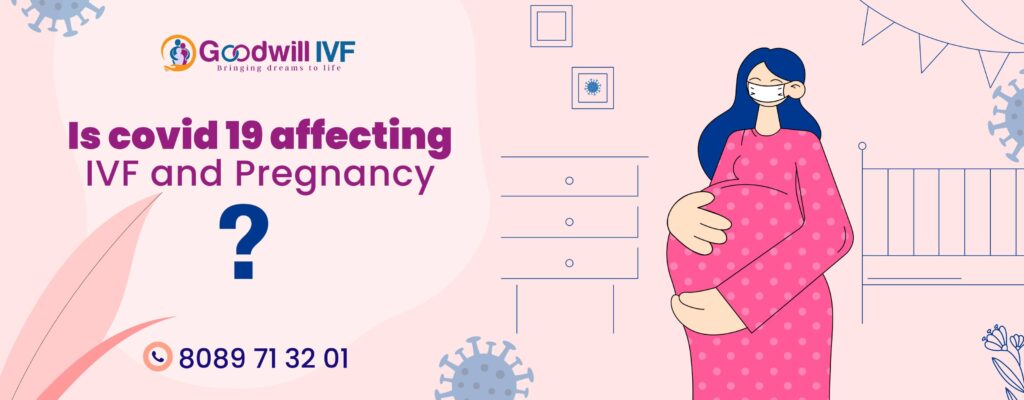It is an undeniable fact that there is a plethora of research which highlights the fact that pregnancies that are conceived through the process of in-vitro fertilization (IVF) carry a slightly elevated risk of miscarriage as compared to spontaneous or natural pregnancies. The precise level of this increased risk may vary depending on the study in question.
The American Pregnancy Association has stated that in the majority of healthy women who conceive naturally, the chances of experiencing a miscarriage can range from 10-25%, with an average chance of 15-20% for a miscarriage. In contrast, a study from 2003 found that women who underwent IVF and became pregnant with a single child miscarried almost 22% of the time, indicating a slightly elevated risk of miscarriage for women who opt for IVF and become pregnant with a single embryo.
It is worth noting that twin pregnancies have a significantly lower risk of loss, once fetal heartbeats have been detected. This leads to the conclusion that twin pregnancies after IVF have a better chance of survival.
IVF and Miscarriage
In vitro fertilization (IVF) is a popular method of assisted reproduction that has helped many couples achieve their dream of having a baby. However, like any medical procedure, it comes with its own set of risks and complications. One of the most significant concerns for women undergoing IVF is the possibility of a miscarriage.
A miscarriage is a pregnancy loss before the 20th week of gestation. It can be a traumatic and emotional experience for couples, and the thought of it happening after an IVF cycle can be especially concerning. So, what are the chances of a miscarriage after an IVF cycle?
For example, the miscarriage rate for women under the age of 35 who have healthy embryos is around 10-15%. This rate increases to 20-30% for women between the ages of 35-39 and 30-50% for women over the age of 40. Additionally, the quality of the embryos can also play a role in the risk of miscarriage. Embryos that have a high rate of chromosomal abnormalities are more likely to result in a miscarriage.
It is important to note that these are general statistics and may not apply to every case. It’s always best to consult with an IVF specialist to understand the specific risks and chances of a miscarriage in your case.
What Factors Contribute to the Elevated Risk?
It is imperative to comprehend that researchers do not believe that the reason for the increased risk of miscarriage is intrinsically linked to the IVF procedure itself. Rather, it is more likely that the increased risk of miscarriage after in-vitro fertilization or another form of fertility treatment is associated with the underlying reasons for the fertility treatment.
To put it simply, patients who require in-vitro fertilization may simply be in a higher risk category for miscarriage, regardless of the means of conception. Some of the possible explanations for this phenomenon include:
Advanced Age:
Women who undergo in-vitro fertilization tend to be older than women who conceive naturally, and older maternal age is associated with a higher risk of miscarriage. For instance, women between the ages of 35 and 45 have a 20-35% chance of experiencing a miscarriage and women over the age of 45 can have up to a 50% chance of experiencing a miscarriage.
Underlying Health Problem:
Women who opt for IVF are more likely to have an underlying health condition that could potentially contribute to a higher risk of miscarriage.
Early Awareness:
When a woman undergoes IVF, she generally pays close attention to each cycle and finds out that she is pregnant very early on in the process. In contrast, women who conceive naturally may not be aware of their pregnancy as early, particularly if the pregnancy is unexpected.
Ovarian Stimulation:
Studies found that the amount of ovarian stimulation a woman receives while using assisted reproductive technology may play a role. The researchers observed an association between higher ovarian stimulation and an increased risk of miscarriage.
It is crucial to remember that these findings should not discourage individuals from pursuing IVF if they require it. It is recommended to discuss with a medical professional to develop a plan that works best for the individual’s situation. In fact, using pre-implantation genetic diagnosis (PGD) may reduce the risk of miscarriage in an IVF pregnancy if there is a history of past miscarriages before the treatment, especially for individuals over 40.
In conclusion:
The risk of a miscarriage after an IVF cycle can vary depending on several factors such as the age of the woman, the quality of the embryos, and the overall health of the woman. In general, the risk of miscarriage is lower for women who are younger and have healthy embryos. Goodwill IVF is one of the best IVF centre in Malappuram you can rely on to understand the specific risks and chances of a miscarriage. Additionally, the cost of IVF in Kerala can vary, but it’s an investment worth considering for couples who are struggling to conceive naturally.


